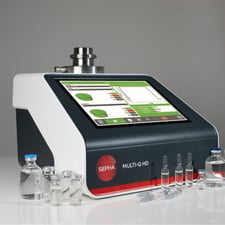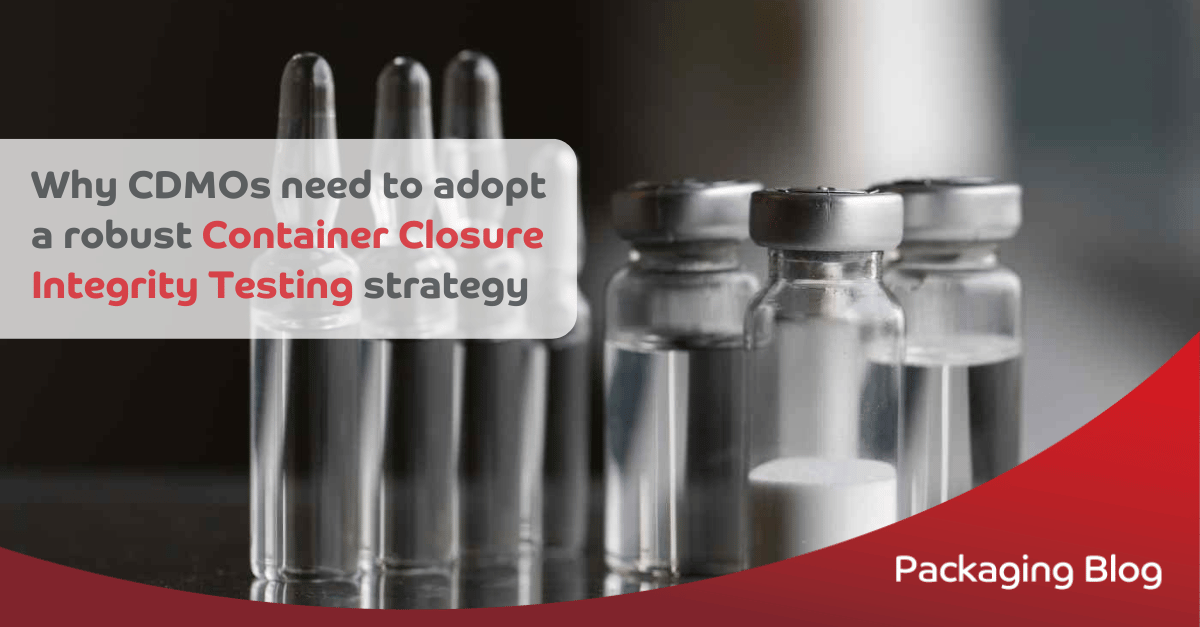Pharmaceutical manufacturers are increasingly outsourcing drug development and manufacturing to Contract Development and Manufacturing Organizations (CDMOs). This allows them to leverage the expertise and infrastructure of CDMOs, enabling them to focus on their core competencies, such as research and development. A crucial aspect of this partnership is the adoption of robust Container Closure Integrity Testing (CCIT) strategies by CDMOs.
The revised version of EU GMP Annex 1 that came into place last August, introduced significant changes to the pharmaceutical industry's practices for container closure integrity testing, highlighting a shift from probabilistic methods to a more reliable and deterministic approach.
This blog post highlights the critical nature of CCIT for CDMOs, its regulatory implications, and the competitive advantage it offers.
Regulatory Emphasis on CCIT
Regulatory authorities such as the FDA and EU GMP are intensifying their scrutiny on drug product safety, with CCIT becoming a key focus area. The revised Annex 1 sees major changes towards the implementation of a Contamination Control Strategy (CCS) in which companies demonstrate their understanding of their sterile products and manufacturing processes, and how potential risks are identified and mitigated. It highlights a holistic approach to contamination control and emphasises the importance of continuous improvement to ensure product quality, product stability and product safety.
Guidelines like USP <1207> prefer deterministic methods over probabilistic methods like blue dye ingress, providing a comprehensive framework for package integrity evaluation. As a CDMO, adherence to such guidelines is not just a regulatory mandate but also an essential step towards safeguarding product sterility and ensuring patient safety.
Impact of CCIT on CDMO Reputation
In a competitive market, a breach in container closure systems can lead to product recalls, financial losses, and irreversible damage to customer trust. Therefore, CDMOs that implement comprehensive CCIT strategies demonstrate their commitment to quality and reliability. This commitment is pivotal in securing partnerships with pharmaceutical companies and upholding a CDMO's reputation in the industry.
Proactive CCIT Approach: A Competitive Advantage
A proactive CCIT approach ensures that CDMOs can confidently manage risks associated with new packaging materials and complex drug formulations. Investing in state-of-the-art CCIT technology and expertise allows a CDMO to meet client-specific needs and adapt to emerging industry trends. This capability, coupled with an unyielding commitment to excellence, positions a CDMO as an industry leader in the eyes of both current and prospective clients.
Selecting the right CCIT method
There are several types of CCIT methods available, each with its own set of advantages. These include physical methods like vacuum decay testing, pressure decay testing and high voltage leak detection, as well as chemical methods such as tracer gas leak detection. Selecting the right method depends on factors like the type of product, the nature of the packaging, and the specific requirements of the pharmaceutical company.
It's important to understand there is no preferred method that suits all needs. CDMO’s need to assess the requirements of each container type and select the method that is most suitable to the product. Sensitivity plays a key role in selecting the right method, especially when working with injectables. The method needs to be capable of detecting micron defects to provide quality assurance.
Sepha’s CCIT solutions
Being a leading global provider of non-destructive and deterministic CCIT & Leak Test solutions for the pharmaceutical sector, we have supported numerous CDMOs worldwide in developing their CCIT strategies using the Sepha Multi-Q. This device, known for its non-invasive design and advanced technology, enables CDMOs to enhance their quality control procedures, ensuring pharmaceutical products comply with safety standards and regulations with utmost precision.
 The Multi-Q is a non-destructive and deterministic CCIT solution developed for stability testing, clinical trials, and in-process quality control testing. The lab-scale unit has a small footprint and offers the flexibility to test different container types by use of interchangeable tooling and test methods including vacuum decay (ASTM F2338-09) and pressure decay. The Multi-Q's adaptability in handling various packaging formats, coupled with its remarkable sensitivity in defect detection down to 1 micron, makes it the perfect choice for CDMOs handling different container types and contents.
The Multi-Q is a non-destructive and deterministic CCIT solution developed for stability testing, clinical trials, and in-process quality control testing. The lab-scale unit has a small footprint and offers the flexibility to test different container types by use of interchangeable tooling and test methods including vacuum decay (ASTM F2338-09) and pressure decay. The Multi-Q's adaptability in handling various packaging formats, coupled with its remarkable sensitivity in defect detection down to 1 micron, makes it the perfect choice for CDMOs handling different container types and contents.
The strategic integration of the Multi-Q into CDMOs' operations represents a significant step towards operational excellence. It addresses the industry's shift from traditional, often destructive testing methods towards reliable, and repeatable test results without compromising on product integrity. Our commitment to enhancing the pharmaceutical sector is evident in the continuous improvements to the Multi-Q, showcasing our comprehensive approach to tackling industry challenges. We are proud to collaborate with CDMOs striving for quality without compromise and demonstrate our continued support as a key ally in pharmaceutical innovation.
Conclusion
In summary, the adoption of robust CCIT strategies by CDMOs is a fundamental component of their broader commitment to quality, safety, and innovation. Our company plays a crucial role in this field by providing innovative CCIT solutions that enhance the capabilities of CDMOs, thereby benefitting pharmaceutical manufacturers and ultimately, patients. As the pharmaceutical landscape continues to evolve, the importance of CCIT for CDMOs will only amplify, reinforcing the need for ongoing innovation and excellence in this critical area.
Watch Multi-Q video
Explore more:


